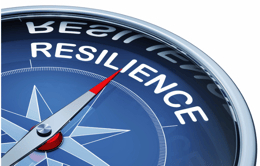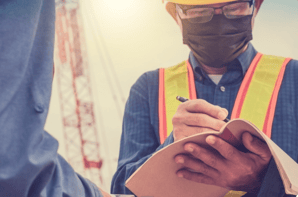 In high-stakes industries where safety is paramount, accidents and incidents are often quickly attributed to human error. This knee-jerk reaction to blame individuals has deep roots in organisational culture and leadership attitudes. However, this blame-oriented approach can hinder the development of truly resilient and safe systems. In this article, we will explore the limitations of focusing solely on human error, the benefits of adopting a systemic approach to safety, and how organisations can change their mindset to create robust, resilient systems.
In high-stakes industries where safety is paramount, accidents and incidents are often quickly attributed to human error. This knee-jerk reaction to blame individuals has deep roots in organisational culture and leadership attitudes. However, this blame-oriented approach can hinder the development of truly resilient and safe systems. In this article, we will explore the limitations of focusing solely on human error, the benefits of adopting a systemic approach to safety, and how organisations can change their mindset to create robust, resilient systems.
Shifting the Focus from Human Error to Systemic Safety: A Path to Resilience
Topics: Organisational Resilience, Safety Differently, Safety II
Unlocking the Potential of Incident Investigation: Understanding Human Factors and Just Culture
 Incident investigation is a central role of safety professionals and a vital process for safety management in organisations. However, despite their importance, incident investigation processes often need to be more effective as learning tools across organisations. In this article, we will explore what an effective incident investigation process looks like, the science of human factors and the theory of just culture as they relate to incident management and investigation.
Incident investigation is a central role of safety professionals and a vital process for safety management in organisations. However, despite their importance, incident investigation processes often need to be more effective as learning tools across organisations. In this article, we will explore what an effective incident investigation process looks like, the science of human factors and the theory of just culture as they relate to incident management and investigation.
Topics: Incident and Performance Management, Safety Differently
 Decluttering a safety management system is an important task that can help ensure that your organisation effectively manages risks and keeps employees safe. A cluttered and disorganised safety management system can be confusing, hard to navigate, and even create additional risks if important information is not easily accessible. In this blog post, we'll discuss the steps you can take to declutter your safety management system and keep it organised, up-to-date, and effective.
Decluttering a safety management system is an important task that can help ensure that your organisation effectively manages risks and keeps employees safe. A cluttered and disorganised safety management system can be confusing, hard to navigate, and even create additional risks if important information is not easily accessible. In this blog post, we'll discuss the steps you can take to declutter your safety management system and keep it organised, up-to-date, and effective.
 The Health and Safety profession has made great strides in safety performance over the last 50 years, technology has become safer to use, and techniques such as HAZOP and bowtie analysis have given us ways to think about and manage hazards. This approach has served the industry well, but safety performance has recently stalled.
The Health and Safety profession has made great strides in safety performance over the last 50 years, technology has become safer to use, and techniques such as HAZOP and bowtie analysis have given us ways to think about and manage hazards. This approach has served the industry well, but safety performance has recently stalled.
 Have you ever been involved in a safety investigation where you felt like you were being interrogated?
Have you ever been involved in a safety investigation where you felt like you were being interrogated?
You felt like you've done something wrong, and the intention was more to find out how you should be punished than how your organisation could learn.
Sadly many of us have either had that or heard about others that have had that particular experience, yet the fact is that such an approach does very little to improve safety.
Topics: Reviews, Audits and Inspections, Organisational Resilience, Safety Differently
Subscribe to News & Updates
Recent News
Categories
- Blog (197)
- Occupational Health and Wellbeing (40)
- Prosecutions (34)
- Safety Management Systems (22)
- Responsibility, Authority and Commitment (21)
- Incident and Performance Management (20)
- Hazard and Risk Management (16)
- Planning, Objectives and Legal Obligations (16)
- Safety Culture (15)
- Reviews, Audits and Inspections (14)
- Training and Competence (13)
- Safety Differently (12)
- Safe Systems of Work (11)
- Safe Work Australia (11)
- Hazardous Materials Management (10)
- Documentation, Document Control and Records (9)
- Facilities and the Working Environment (8)
- Safety Consultants (8)
- Communication, Consultation and Involvement (7)
- Contractors, Suppliers, Visitors & Customers (7)
- Organisational Resilience (6)
- Recently Added (5)
- Safety coaching (5)
- Psychosocial Safety (4)
- Workplace Culture (4)
- Safety II (3)
- Safety management system software (3)
- Authority and Commitment (2)
- Emergency Preparedness (2)
- Ergonomics (2)
- Industry Sectors (2)
- Christmas (1)
- Equal Opportunity (1)
- Human Rights (1)
- Labour Hire (1)
- Plant and Equipment (1)
- Safety In Design (1)
- Safety Leadership (1)





